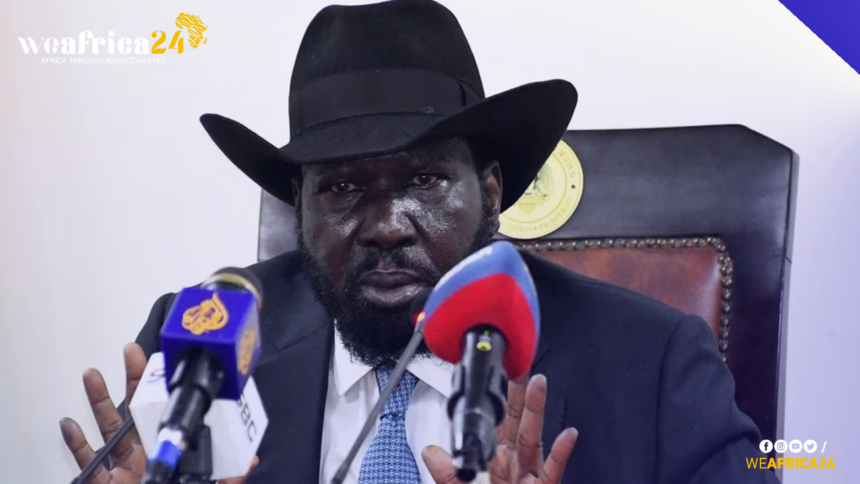In a bid to address the escalating tensions in the Eastern Democratic Republic of Congo (DRC), President Salva Kiir of South Sudan, in his capacity as the East African Community (EAC) chairman, embarked on a diplomatic tour encompassing Rwanda, Burundi, and the DRC.
President Kiir’s diplomatic mission commenced with a visit to Kigali, where discussions centered on mitigating the conflict in Eastern DRC, which intensified following the withdrawal of the EAC Regional Forces (EACRF) last year. The absence of these regional forces has exacerbated hostilities between the DRC armed forces (FARDC) and M23 rebels.
During his meeting with Rwandan President Paul Kagame, and in collaboration with EAC Secretary General Dr. Peter Mathuki, President Kiir advocated for supporting initiatives such as the Luanda and Nairobi processes. These endeavors aim to address the root causes of tensions between Rwanda and the DRC and facilitate dialogue among warring factions within the DRC.
Additionally, President Kiir engaged with Burundi’s President Evariste Ndayishimiye and DRC President Felix Tshisekedi to explore avenues for de-escalating tensions among the three EAC member states. Notably, Burundi has accused Rwanda of supporting rebels against its government, while the DRC has accused Rwanda of backing the M23 rebels. However, Kigali has refuted these allegations.
Amidst the diplomatic efforts, concerns have been raised by the African Union Commission (AUC) Chairperson Moussa Faki Mahamat regarding the ongoing tensions in Eastern DRC. Emphasizing the importance of dialogue, Faki urged DRC and Rwanda to prioritize peaceful resolutions to their differences, cautioning against military solutions.
Since the withdrawal of the EACRF, President Tshisekedi has sought support from the South African Development Community (SADC) to combat the M23 rebels. Meanwhile, the strained relations between Burundi and Rwanda have led to the closure of land borders, with Burundi accusing Rwanda of supporting armed groups.
Despite the challenges, diplomatic efforts spearheaded by President Kiir underscore the region’s commitment to finding peaceful solutions to the complex dynamics in Eastern DRC. As tensions persist, the need for sustained dialogue and regional cooperation remains paramount in achieving lasting peace and stability in the Great Lakes Region.







